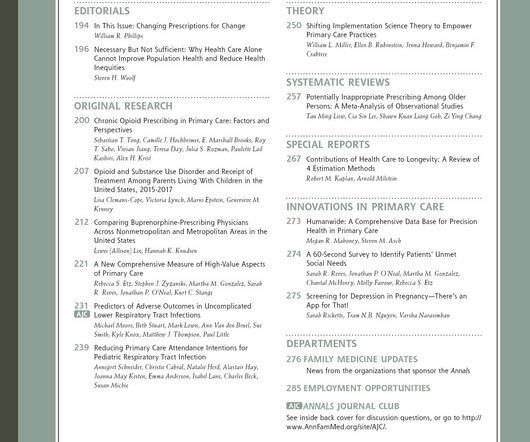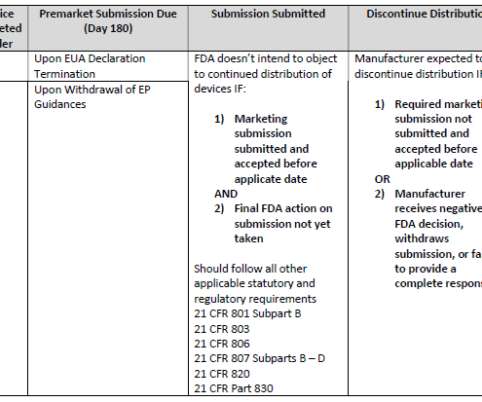Patients Preferences and Difficulties with 5 Different Fecal Immunochemical Tests (FITs) [Screening, prevention, and health promotion]
Annals of Family Medicine
NOVEMBER 20, 2024
Context: FITs are an accepted method of colorectal cancer (CRC) screening and patients’ preferences and difficulties are unknown. Population Studied: 2148 individuals aged 50 to 85 years scheduled for screening or surveillance colonoscopy. FIT manufacturers should develop very clear directions for patients.























Let's personalize your content